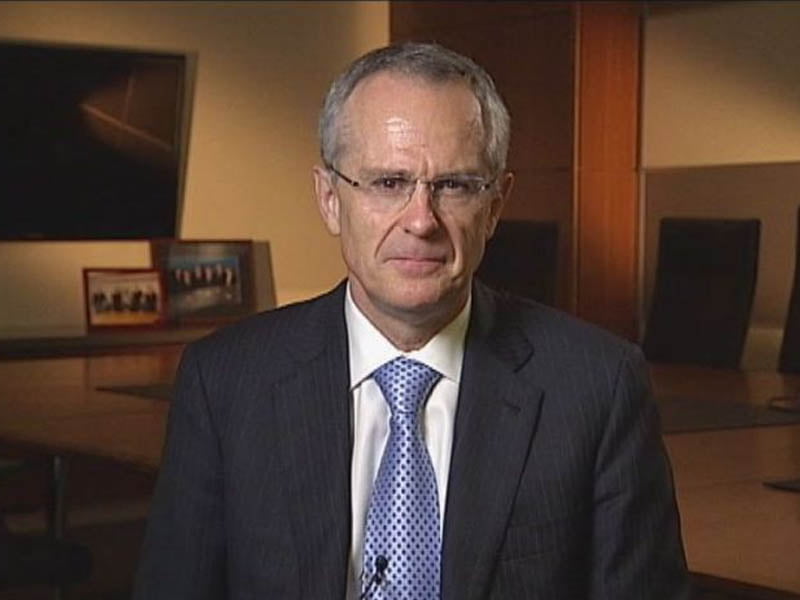Existing data protection laws have failed Australians and the government needs to get on the front foot to better protect privacy and curb the market dominance of the tech giants, according to ACCC chief Rod Sims.
Mr Sims used his first speech following the release of the competition watchdog’s landmark report into digital platforms to urge government to adopt the recommendations included in it, and to counter some of the criticisms levelled at the inquiry.
Addressing the Melbourne Press Club on Tuesday afternoon, Mr Sims said it’s important for the government to get on the front foot and make serious reforms to address the market dominance of digital platforms like Facebook and Google.

“We should all be very concerned that the existing regulatory frameworks for the collection and use of data have not held up well to the challenges of digitisation; nor have they appropriately responded to the incentives created by the supply of targeted advertising that relies on the monetisation of consumer data and attention,” Mr Sims said in the speech.
“Citizens will, and should, demand that government stay ahead of these issues.”
The competition watchdog’s much-anticipated final report from its inquiry into digital platforms was publicly released at the end of July.
Across 23 recommendations, the ACCC urged the government to pursue “significant, holistic reform” to curb the market dominance of these tech giants and better protect the personal data of Australians.
The 18-month inquiry found that these platforms had “unparalleled” access to Australian audiences, and a huge portion of their value is based on future growth.
“These are not community-based, not-for-profit companies, no matter how much they seek to portray themselves as benevolent enablers of human interaction and knowledge sharing,” Mr Sims said.
“While they might provide a wide array of services to their customers, at zero monetary cost, like any other successful public company, their success is measured in shareholder returns,” he said.
“While they might position themselves as ‘dumb pipes’, simply the messengers not the message, this portrayal is contradicted by their need to capture and monetise increasing amounts of user attention and data to continue to grow.”
A central recommendation from the report is to require these tech companies to create new Codes to address the “imbalance in the bargaining relationship between platforms and news media’. These codes would cover the sharing of data, the company’s algorithms, monetisation and value sharing.
The tech firms would be required to submit these Codes to ACMA within nine months, or a mandatory standard would be implemented with large penalties for non-compliance.
The watchdog also wants a permanent, specialist digital platforms branch to be established within the ACCC to “proactively monitor, report on and investigate instances of anti-competitive conduct and consumer harm arising out of the conduct of digital platforms,” Mr Sims said.
“The Treasurer has already endorsed the establishment of this branch which will see the deep skills and knowledge we have gained put to full effect. Crucially this branch would continue to monitor matters covered in this inquiry and make information available through regular public reports and, where appropriate, recommendations to government to address evolving consumer harm and market failure,” he said.
“It would give the government and policy-makers an evidence base to make informed policy decisions in the future as circumstances inevitably change. It is vital that government and society get and remain ahead of these issues.”
The ACCC called for reforms to the Privacy Act and Australian privacy law framework to strengthen protections for Australians, along with the introduction of a privacy code of practice for digital platforms.
“Consumers relinquish considerable control over how their uploaded content is used by digital platforms, usually without realising it. The ACCC found that few consumers are fully informed of, nor can effectively control, how their data is collected, used and shared by digital platforms when they sign up for or use their service,” Mr Sims said.
“Trust is at the heart of the digital economy. It is important that there is transparency over the collection and use of data so consumers can exercise real choices and have meaningful control over their data. Consumer trust is crucial for sustaining continued innovation and growth in Australian digital markets.”
Mr Sims acknowledged some of the criticism that the ACCC report has been met with, but said the competition watchdog got the balance right.
“We welcome the discussion our report has provoked. To date the dominant criticisms have either that we have not gone far enough, or that Australia can do nothing on its own. We remain convinced that our recommendations have got it right,” he said.
“Let’s address the problems we can identify now, but also let us put in place mechanisms to provide a continuing flow of information to deal with other problems as they inevitably rise. Not only is there no single silver bullet, but we are now starting a journey that has a long way to go.”
Some of the report’s recommendations have also been criticised by members of the tech sector, especially a push for tighter rules around the tech giants acquiring startups.
“Some argue that increasing regulation in digital markets will stifle innovation. But this fails to recognise that while digital innovations have the potential to transform societies for the better, there are also forms of innovation that can be harmful or corrosive,” Mr Sims said.
“Thoughtful regulatory frameworks can help us harness the benefits of innovation while protecting society from its potential harms.”
The government has now opened public consultations on the ACCC report and will be releasing its response by the end of the year.
Do you know more? Contact James Riley via Email.

